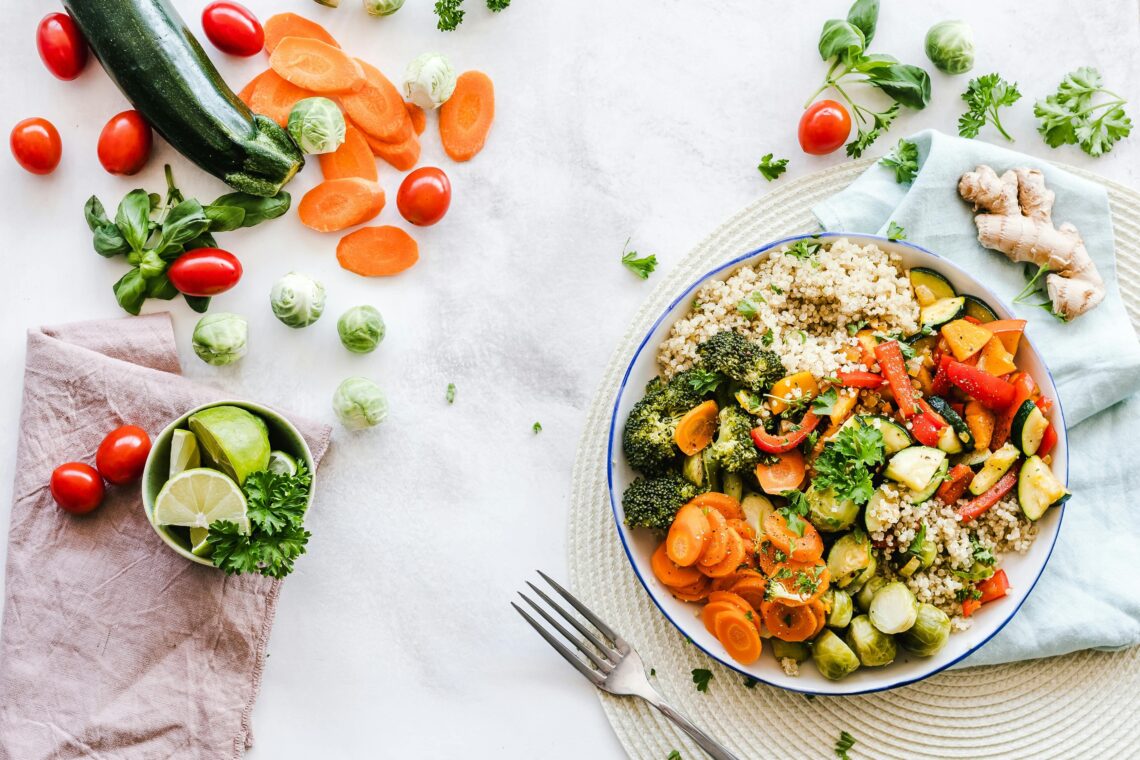As we gracefully navigate life beyond 35, our bodies undergo subtle yet significant shifts, particularly when it comes to our hormones. These chemical messengers play a vital role in everything from mood and energy levels to sleep, weight management, and reproductive health. While hormonal changes are a natural part of aging, the foods we choose can significantly impact this delicate balance, helping us thrive and feel our best.
So, what should be on your plate to support hormonal harmony in your vibrant years? Here are some of the best food groups and specific examples to incorporate into your diet:
Embrace the Power of Fiber:
Fiber is your digestive system’s best friend, and it also plays a crucial role in hormone regulation. It helps to eliminate excess hormones from the body and promotes stable blood sugar levels, which can indirectly influence hormone balance.
- Leafy Greens: Spinach, kale, and collard greens are packed with fiber, vitamins, and minerals.
- Cruciferous Vegetables: Broccoli, cauliflower, Brussels sprouts, and cabbage contain compounds that can support healthy estrogen metabolism.
- Legumes: Lentils, beans, and chickpeas are excellent sources of fiber and plant-based protein, helping to stabilize blood sugar and keep you feeling full.
- Whole Grains: Opt for oats, quinoa, brown rice, and whole-wheat bread over refined grains for their higher fiber content.
Prioritize Healthy Fats:
Fats are essential building blocks for hormone production. Choosing the right kinds of fats is key.
- Avocados: Rich in monounsaturated fats, fiber, and various vitamins and minerals.
- Nuts and Seeds: Almonds, walnuts, chia seeds, flax seeds, and pumpkin seeds provide healthy fats, protein, and essential nutrients. Flax and chia seeds are particularly beneficial due to their omega-3 fatty acids and lignans, which can have estrogen-balancing effects.
- Olive Oil: A staple of the Mediterranean diet, extra virgin olive oil is rich in monounsaturated fats and antioxidants.
- Fatty Fish: Salmon, mackerel, sardines, and tuna are excellent sources of omega-3 fatty acids, which have anti-inflammatory properties and can support overall hormonal health.
Lean Protein is Your Ally:
Protein is crucial for satiety and supports the production of various hormones.
- Skinless Poultry: Chicken and turkey are lean sources of protein.
- Fish: As mentioned above, fatty fish is great, but other types of fish are also good sources of lean protein.
- Eggs: A complete protein source packed with nutrients.
- Tofu and Tempeh: Plant-based complete protein options that can be versatile additions to your diet.
Focus on Phytoestrogens (in Moderation):
Phytoestrogens are naturally occurring plant compounds that can have estrogen-like effects in the body. While research is ongoing, moderate consumption of these foods may be beneficial for some women, particularly during perimenopause.
- Soybeans and Edamame: Choose whole, unprocessed soy products.
- Flaxseeds: As mentioned, they are rich in lignans, a type of phytoestrogen.
Hydration is Key:
Water is essential for all bodily functions, including hormone transport and elimination. Aim to drink plenty of water throughout the day.
Foods to Be Mindful Of:
While incorporating the above foods is beneficial, it’s also important to be aware of foods that can potentially disrupt hormonal balance:
- Processed Foods: Often high in unhealthy fats, sugar, and artificial ingredients, which can contribute to inflammation and hormonal imbalances.
- Excessive Sugar: Can lead to insulin resistance, which can impact other hormones.
- Refined Carbohydrates: Similar to sugar, they can cause rapid blood sugar spikes and crashes.
- Excessive Caffeine and Alcohol: Can disrupt sleep patterns and potentially impact hormone levels.
Listen to Your Body:
Ultimately, the best diet for hormonal balance is one that is personalized to your individual needs and sensitivities. Pay attention to how different foods make you feel and consider consulting with a healthcare professional or registered dietitian for personalized advice.
Nourishing your body with the right foods is a powerful step towards supporting hormonal balance and embracing a vibrant, healthy life after 35. By focusing on whole, unprocessed foods rich in fiber, healthy fats, and lean protein, you can empower your body to navigate these natural transitions with grace and vitality.

